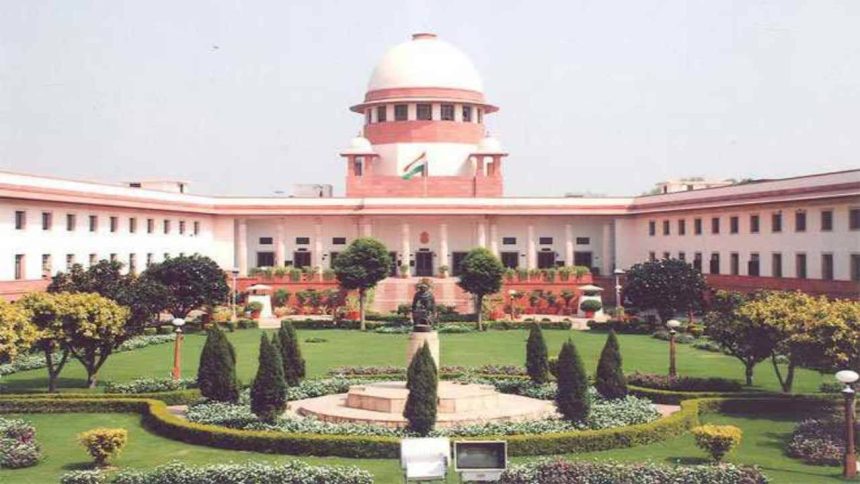
New Delhi: The Supreme Court has held the right to digital access is an intrinsic component of the right to life under Article 21 of the Constitution and directed changes in digital know your customer (KYC) guidelines for persons with disability and acid attack survivors.
A bench comprising Justice JB Pardiwala and Justice R Mahadevan held this while hearing pleas filed by acid attack survivors suffering from facial disfigurement and severe eye burns and person with 100% blindness and seeking directions to formulate appropriate rules and guidelines for conducting digital KYC/e-KYC/Video KYC process through alternative methods, with a view to ensuring that the process is more inclusive and accessible to all persons with disabilities.
Petitioners highlighted their inability to complete KYC processes
The petitioners highlighted their inability to complete KYC processes requiring them to perform visual tasks such as blinking, moving the head, or positioning their face within specified frames- tasks, which they are unable to accomplish due to their visual impairments and facial disfigurements. As a result, they encounter delays or are entirely unable to establish their identity, open bank accounts, or access essential services and government schemes, they submitted.
Changes are necessary as persons with disabilities unable to complete KYC process: Apex Court
The bench noted that the petitioners are unable to independently complete digital KYC processes due to the inaccessibility of the current digital KYC regulations, resulting in their exclusion from accessing services provided by both public and private establishments and said that changes are necessary as persons with disabilities are unable to complete the KYC process and avail facilities like opening bank accounts and take benefit of welfare schemes.
True inclusion requires that technological advancements accommodate the diverse needs of all citizens: Apex Court
The bench noted that technology has played a transformative role in reshaping India’s economy and governance and initiatives such as Digital India aim to promote efficiency, transparency, and accessibility through digital means and creation of a robust digital infrastructure, including the Aadhaar program, online KYC mechanisms, and various electronic service delivery platforms.
“However, amidst this wave of digital progress, there remains a crucial and often overlooked aspect that demands urgent attention – ensuring that digital infrastructure and services are accessible to all, including persons with disabilities and other marginalised groups. True inclusion requires that technological advancements accommodate the diverse needs of all citizens, thereby fostering an environment where no individual is left behind,” the bench said and added, “In the contemporary era, where access to essential services, governance, education, healthcare, and economic opportunities is increasingly mediated through digital platforms, the right to life under Article 21 of the Constitution must be reinterpreted in light of these technological realities.”
The bench noted persons with disabilities encounter unique barriers in accessing online services due to the lack of accessible websites, applications and assistive technologies and similarly, individuals in remote or rural areas often face poor connectivity, limited digital literacy, and a scarcity of content in regional languages, effectively denying them meaningful access to e-governance and welfare delivery systems.
“In such circumstances, the State’s obligations under Article 21– read in conjunction with Articles 14,15 and 38 of the Constitution – must encompass the responsibility to ensure that digital infrastructure, government portals, online learning platforms, and financial technologies are universally accessible, inclusive and responsive to the needs of all vulnerable and marginalized populations,” the bench said.
Bridging digital divide has become a constitutional imperative: Apex Court
“Bridging the digital divide is no longer merely a matter of policy discretion but has become a constitutional imperative to secure a life of dignity, autonomy and equal participation in public life. The right to digital access, therefore, emerges as an intrinsic component of the right to life and liberty, necessitating that the State proactively design and implement inclusive digital ecosystems that serve not only the privileged but also the marginalized, those who have been historically excluded,” the bench added while directing for changes in digital KYC guidelines for persons with disability and acid attack survivors.










